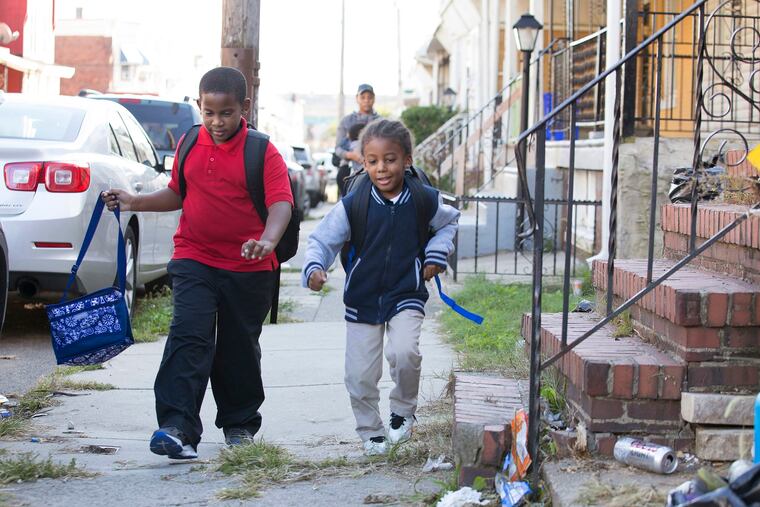Maryland lead law not nearly as effective as Philly’s current model | Opinion
The City of Philadelphia is considering passing the Maryland model here, but why are we considering changing our law to a model that has not achieved as much success as we already have?

In 2015, the state of Maryland began enforcing a law requiring every rental unit built before 1978 to become certified as “lead free” or “lead safe” prior to every change in occupancy. And since 2014, the year before the law went into effect, the number of children under age six identified with dangerous blood lead levels has gone down from 1.1 percent to 0.9 percent.
Can this be considered progress? Technically, we suppose. Significant progress? No, not really.
Since Philadelphia enacted its own 2011 lead law, there has been a decrease in newly identified children with dangerous blood lead levels from 1.6 percent in 2010 to 0.8 percent in 2017. This means we cut our rate of children endangered by lead by more than half thanks to the 2011 law and other prevention efforts – and that certainly is significant progress.
The City of Philadelphia is considering passing the Maryland model here, but why are we considering changing our law to a model that has not achieved as much success as we already have? This model would not likely protect any more children than we are now – and it would also raise rents by as much as $400 a month according to the Anderson Group, pushing many families out of licensed rental housing and into unsafe units managed by unlicensed landlords. (Perhaps this is one reason why the Maryland numbers aren’t more impressive.)
With that said, while Philadelphia’s declining rate of children testing positive for lead is encouraging, just one child testing positive is one too many. That is why Pennsylvania Apartment Association East and the Homeowners Association of Philadelphia propose a new solution: to require every pre-1978 rental unit to either 1) be certified as lead free or lead safe prior to a change in occupancy, or 2) have a signed waiver from the tenant leasing the unit stating he or she does not have children and does not need to have the apartment inspected for lead paint at that time.
Approximately 85 percent of rental homes in the city built before 1978 do not house children. So it hardly makes sense to pass such a drastic one-size-fits-all measure when a more targeted approach would protect children while helping landlords better manage increased costs – keeping families and children in quality, licensed housing stock.
The number of children with dangerous blood lead levels in Philadelphia fell from 1,413 in 2006 to 369 in 2015 – and with our compromise and increased compliance by property owners, as well as enforcement of other new legislation regulating lead paint in public schools and other community spaces, we firmly believe the numbers will continue to decline. Our compromise offers a real opportunity to eradicate the effects of lead in the city once and for all and to improve Philadelphia’s record of success – a record which is already better than Maryland’s.
We applaud and thank Councilwoman Blondell Reynolds-Brown for her leadership in protecting children from the harmful impact of lead exposure, and we look forward to continuing to work with her and others on this critical matter.
Marlynn Orlando is the Executive Director of Pennsylvania Apartment Association East. Victor Pinckney, Sr. is the 1st Vice President of the Homeowners Association of Philadelphia.